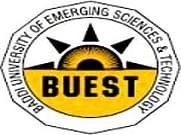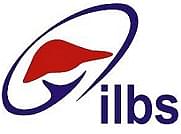Introduction about B.A. in psychology
Top B.A. Psychology college in India is an undergraduate degree
program that delves into the study of the human mind and behaviour. It offers
students a comprehensive understanding of psychological theories, research
methods, and practical applications across various fields.
In this program,
students explore a wide range of topics, including cognitive processes,
emotional development, social interactions, abnormal behaviour, and
psychological disorders. They learn to critically analyse research findings,
evaluate psychological theories, and apply concepts to real-world situations.
The curriculum
typically includes courses in areas such as developmental psychology, social
psychology, cognitive psychology, abnormal psychology, and research methods.
Additionally, students may have the opportunity to specialize in specific areas
of interest, such as clinical psychology, counselling psychology,
organizational psychology, or neuroscience.
Through coursework,
research projects, internships, and practical experiences, students develop
essential skills in critical thinking, research design, data analysis,
communication, and interpersonal relations. These skills are valuable not only
for further academic pursuits but also for careers in various fields such as
mental health, education, human resources, social services, marketing, and
research.
Overall, a B.A. in
Psychology provides a solid foundation for understanding human behaviour and
prepares students for a diverse range of career paths or further study in
psychology or related fields.
What is eligibility for B.A. in psychology ?
The eligibility criteria for B.A. in Psychology can vary depending on the institution
offering the program and the country in which it is offered. However, here are
some general eligibility requirements that are common for many B.A. in
Psychology programs:
§ Educational Qualifications: Typically, candidates must have completed
their secondary education or its equivalent (such as high school diploma,
A-levels, or equivalent qualification) from a recognized educational board or
institution.
§ Minimum Grade Requirement: Many universities and colleges may have a
minimum grade requirement for admission into the B.A. in Psychology program.
This requirement can vary but is often specified in terms of a minimum GPA
(Grade Point Average) or percentage score obtained in the qualifying
examination.
§ Language Proficiency: Some institutions may require applicants
to demonstrate proficiency in the language of instruction, especially if it is
not their native language. This requirement is usually fulfilled by providing
scores from standardized language proficiency tests such as the TOEFL (Test of
English as a Foreign Language) or IELTS (International English Language Testing
System).
§ Entrance Examinations: In some regions or institutions,
prospective students may be required to take entrance examinations as part of
the admission process. These exams may assess aptitude, reasoning ability, or
subject-specific knowledge.
§ Additional Requirements: Depending on the institution, there may be
additional requirements for admission, such as letters of recommendation,
personal statements or essays, interviews, or portfolios showcasing relevant
experiences or achievements.
What is admission process for B.A. in psychology ?
The admission process for a B.A. in Psychology at top college typically involves
several steps. While the specific procedures may vary depending on the
institution and country, here is a general overview of the typical admission
process:
·
Research
and Planning: Prospective
students should research various universities or colleges offering B.A. in
Psychology programs to identify institutions that align with their academic
goals, preferences, and eligibility criteria.
·
Application
Submission: Candidates must
complete and submit the university or college's application form for
undergraduate admission. This may be done online through the institution's
admissions portal or by mailing a paper application form, depending on the
institution's procedures.
·
Submission
of Required Documents:
Along with the application form, applicants are usually required to submit
supporting documents, which may include:
·
Academic
transcripts: Official
transcripts or records of secondary education or any post-secondary education
completed.
·
Standardized
test scores: If required by
the institution, such as SAT, ACT, or other entrance examinations.
·
Language
proficiency test scores:
For non-native speakers of the language of instruction, scores from tests such
as TOEFL or IELTS.
·
Letters
of recommendation:
Typically from teachers, counselors, or other individuals who can attest to the
applicant's academic abilities, character, or achievements.
·
Personal
statement or essay: A
written statement by the applicant outlining their academic interests, career
goals, relevant experiences, and reasons for choosing the B.A. in Psychology
program.
·
Application
Fee: Some institutions may
require applicants to pay an application fee along with their application
submission. This fee helps cover the administrative costs associated with
processing applications.
·
Review
and Evaluation: Once the application and supporting documents are received, the
admissions committee or department reviews and evaluates each application based
on the established criteria, including academic qualifications, test scores,
personal statement, and other relevant factors.
·
Notification
of Admission Decision:
After the review process is complete, applicants are notified of the admission
decision. This notification may be sent via email, postal mail, or through the
institution's online application portal.
·
Acceptance
and Enrolment: Accepted
applicants must follow the instructions provided by the institution to confirm
their acceptance and complete the enrolment process. This may involve
submitting additional documents, paying enrolment deposits, and registering for
classes.
What is syllabus of B.A. in psychology ?
The syllabus for B.A. in Psychology can vary depending on the institution offering the
program and the specific focus or specialization within the field of
psychology. However, here is a general overview of the typical subjects and
topics covered in a B.A. in Psychology program:
Introduction to
Psychology: An overview of
the fundamental concepts, theories, and methods in psychology, including the
history of psychology, research methods, biological bases of behavior, and
ethical issues in psychology.
Developmental
Psychology: Study of the
psychological processes and changes that occur across the lifespan, including
infancy, childhood, adolescence, adulthood, and aging. Topics may include
cognitive development, social development, and emotional development.
Social
Psychology: Examination of
how individuals think, feel, and behave in social situations, as well as the
influence of social factors on behaviour and attitudes. Topics may include
conformity, obedience, group dynamics, prejudice, and interpersonal
relationships.
Cognitive
Psychology: Exploration of
mental processes such as perception, memory, attention, language,
problem-solving, and decision-making. Topics may include cognitive development,
cognitive neuroscience, and cognitive disorders.
Abnormal
Psychology: Study of
psychological disorders, their causes, symptoms, classification, and treatment
approaches. Topics may include mood disorders, anxiety disorders, personality
disorders, schizophrenia, and psychotherapy.
Research Methods
in Psychology: Introduction
to the principles and methods of psychological research, including experimental
design, data collection, statistical analysis, and interpretation of research
findings.
Psychological
Testing and Assessment:
Overview of psychological assessment techniques, including standardized tests,
interviews, and observation methods used to assess cognitive abilities,
personality traits, and psychological disorders.
Biopsychology: Examination of the biological bases of
behaviour, including the structure and function of the nervous system,
neurotransmitters, hormones, genetics, and the relationship between biological
processes and behaviour.
Health
Psychology: Exploration of
the psychological factors that influence health, illness, and healthcare
behaviour, as well as the development and implementation of interventions to
promote health and prevent disease.
Cross-Cultural
Psychology: Study of the
influence of culture on psychological processes, behavior, and mental health.
Topics may include cultural differences in cognition, emotion, social behavior,
and psychological disorders.
Elective Courses: Students may have the opportunity to
choose elective courses based on their interests or career goals, such as
forensic psychology, organizational psychology, counseling psychology, or
neuropsychology.
Practicum or
Internship: Some programs
may include a practicum or internship component, allowing students to gain
hands-on experience in a professional setting under the supervision of a
qualified psychologist or mental health professional.
What are scopes of B.A. in psychology ?
Top B.A. in psychology college opens up a variety of career opportunities and pathways for further education and specialization. Here are some common scopes and career paths for individuals with a B.A. in Psychology:
Further Education: Many students choose to pursue further
education by enrolling in graduate programs such as Master of Arts (M.A.) or
Master of Science (M.S.) in Psychology, Doctor of Psychology (Psy.D.), or
Doctor of Philosophy (Ph.D.) in Psychology. Further education can lead to
advanced career opportunities in specialized areas of psychology such as
clinical psychology, counselling psychology, organizational psychology, or
neuropsychology.
Clinical and Counselling
Services: Graduates with a
B.A. in Psychology may work as mental health technicians, psychiatric aides, or
case managers in clinical settings such as hospitals, community mental health
centres, or rehabilitation facilities. They may also provide support services
in counselling centres, shelters, or substance abuse treatment programs.
Human Resources and
Personnel Management:
Psychology graduates often find employment in human resources departments of
organizations, where they may work in recruitment, employee training and
development, performance evaluation, and organizational development.
Social and
Community Services:
Graduates may work in social service agencies, non-profit organizations, or
government agencies, where they may provide counselling, advocacy, or support
services to individuals and families facing social, economic, or psychological
challenges.
Education and
School Psychology:
Psychology graduates may work as educational assistants, behaviour specialists,
or school counsellors in educational settings such as schools, colleges, or
educational resource centre. They may assist students with learning
disabilities, behavioural issues, or social-emotional difficulties.
Market Research and
Consumer Behaviour:
Graduates may work in market research firms, advertising agencies, or marketing
departments of companies, where they may conduct research on consumer behaviour,
preferences, and attitudes to inform marketing strategies and product
development.
Human Services
Administration: Graduates
may pursue careers in program coordination, administration, or management of
human services organizations, such as community centres, youth programs, or
advocacy groups.
Applied Research
and Data Analysis:
Psychology graduates may work as research assistants, data analysts, or
research coordinators in academic institutions, research organizations, or
government agencies, where they may assist with research projects, data
collection, analysis, and report writing.
Consulting and
Organizational Development:
Graduates may work as consultants or trainers in organizational development
firms, where they may provide expertise in areas such as team building,
conflict resolution, leadership development, or workplace diversity.
Entrepreneurship
and Business: Some
psychology graduates may choose to start their own businesses or consultancy
firms, offering services such as coaching, counseling, or training to
individuals, organizations, or communities.
About us
:
Universityfindo provides you a platform where
you fulfill your dreams and takes a step forward towards in your life .
We provide you all courses with affordable fees and safe environment . For more
information contact us on our website : universityfindo.com .












